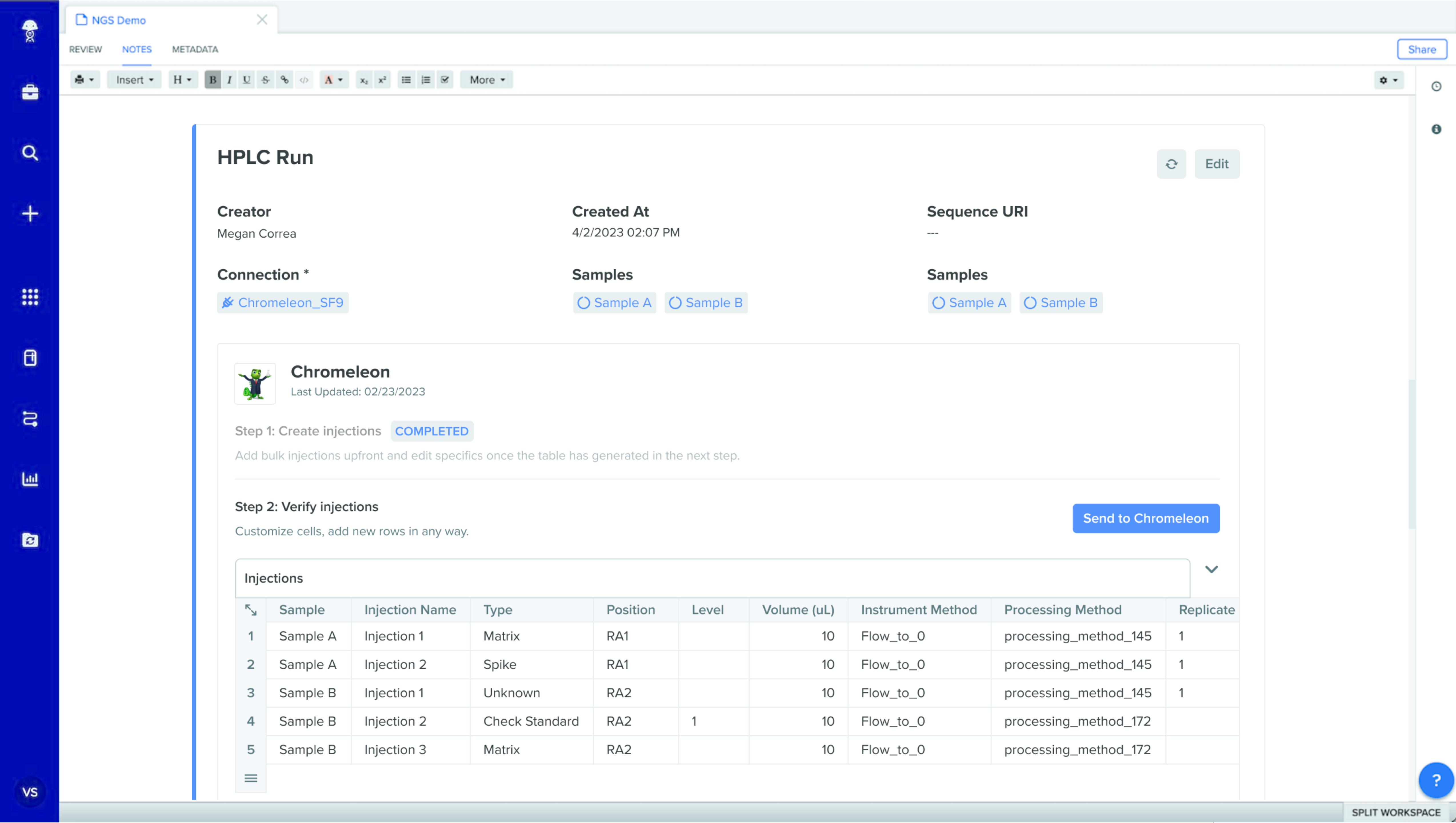Moderna to Onboard R&D Teams to Benchling Platform for AI-Driven Research Integration
Benchling is expanding its collaboration with Moderna, which is now adopting the platform across its broader research organization. The rollout aims to unify experiment design, sample tracking, and results analysis within a single system, replacing disconnected spreadsheets, electronic lab notebooks, and lab-specific tools.
The news comes shortly after Moderna announced cuts to its digital team in February 2025, eliminating around 10% of roles, and the departure of its Chief Information Officer, Brad Miller.
Building on an existing relationship, the partnership focuses on consolidating data infrastructure, automating workflows, and supporting AI-enabled research. Moderna plans to bring hundreds of researchers onto the platform and is using Benchling’s developer tools to implement custom workflows and integrate its own machine learning models. These efforts are intended to streamline experimental setup and improve the scalability of data analysis across programs.
To support data standardization and interoperability across R&D, Benchling’s platform includes a number of tools and functions:
- It captures structured data across experiments and departments to reduce fragmentation in how research teams record and access information.
- Teams can configure workflows without writing code, to make it easier to adapt the platform to their specific processes.
- A unified search function allows users to retrieve experimental data and metadata across the system, which may improve accessibility and reuse.
- Access controls assign permissions at various levels to support both collaboration and compliance.
- The developer toolkit offers APIs and event handlers, enabling integration with custom machine learning models and internal infrastructure.
- A validated cloud environment is available for organizations that operate under GxP or other regulatory requirements.
- Benchling also supports integration with lab instruments and third-party systems, aiming to reduce manual data transfer and maintain consistency across tools.
Benchling’s developer platform includes REST APIs, a Python SDK, event-driven webhooks, and an application framework to build custom R&D interfaces. It also features pre-built connectors for lab instruments and software, and supports data integration through a PostgreSQL-based data warehouse. These tools are designed to help IT teams synchronize Benchling with external systems and construct modular applications that align with scientific workflows. How widely these capabilities are adopted or extended in practice varies by organization, and implementation outcomes have not been uniformly reported.

Benchling Connect, a component of the Benchling platform, is designed to integrate lab instruments and systems for streamlined R&D data flow.
The collaboration also reflects growing efforts in the industry to unify fragmented research infrastructure and make R&D data more accessible for downstream analytics. By centralizing information on a common platform, companies like Moderna aim to accelerate early-stage discovery and improve coordination between computational and wet-lab teams.
Benchling, which acquired PipeBio in October 2024 to extend its capabilities in antibody discovery, reports that over 1,300 biotech companies use its platform. It has positioned itself as a modular system for research teams working across therapeutic modalities, including RNA therapeutics, gene therapy, and cell therapy.